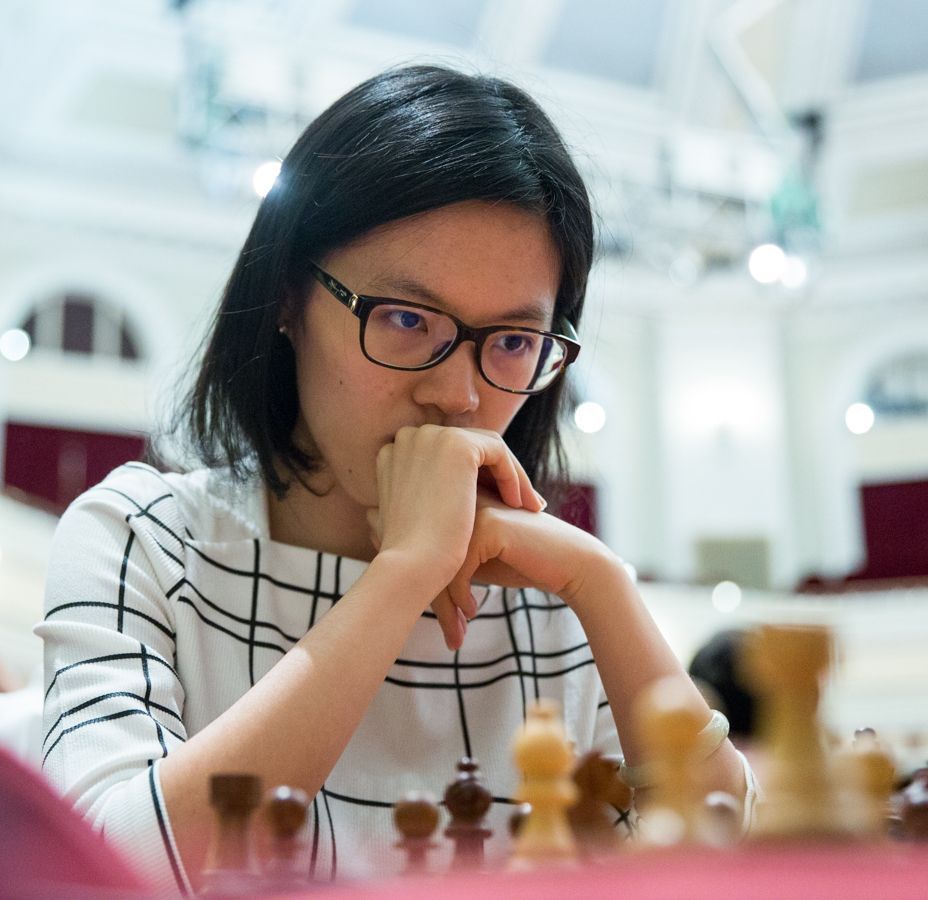
Judit Polgar Encourages More Top Women To Participate In Open Events
GM Judit Polgar, indisputably the greatest female player in chess history, believes that women-only events should continue to exist but asserts that women should not limit themselves, encouraging more participants in the open section.
In a new interview aired during the Women's Speed Chess Championship final between GM Hou Yifan and GM Harika Dronavalli, the Hungarian chess legend discussed with sponsor Julius Baer the male domination in the game and the ultimate question of why so few women compete against the top players of the world.
Despite Polgar herself predominantly competing against men throughout her career at the highest level, defeating former world champions such as GMs Garry Kasparov, Anatoly Karpov, Boris Spassky, and Magnus Carlsen, she understands that there need to be some women-only events.
"There are some things that must go on because that is how it fits the community or the society," she says, but emphasizes: "Most of the competitions should [have an] open section and inspire ladies [by] having inspirational prizes as the 'Best Lady,' 'Best Junior' or 'Best Girl' player," Polgar says.
As an example, Polgar highlights that the reigning Women's World Champion GM Ju Wenjun is not among the world's top 200 players. Changing mindsets among parents and coaches and providing positive feedback in the earliest stages is crucial, she notes, illustrating with an example.
"Say a coach sees a boy and a girl, both seven years old and talented in chess," Polgar says. "Wanting to motivate the boy, the coach might say, 'You are so talented, you can become a world champion—like Magnus Carlsen!' To the girl, the coach might say, 'You can become Women's World Champion!'"
Wanting to motivate the boy, the coach might say, 'You are so talented, you can become a World Champion—like Magnus Carlsen!' To the girl, the coach might say, 'You can become Women's World Champion!'
— Judit Polgar
When discussing limitations, Polgar emphasizes questioning where individuals can reach when positioned on a lower level due to self-imposed or societal limits. She stresses the importance of top women players believing and supporting the idea that women can compete for the top places in the open section.

Polgar's views echo what current Woman number one, GM Hou Yifan, said in an interview with Chess.com in 2019 when asked about the subject.
Growing up, female players are told, "If you win the girls' title, we'll be really proud of you, and this is a great job!" It's unlikely that any of them were told, "No, you should be fighting for the overall title!" Girls are told at an early age that there's a kind of gender distinction, and they should just try their best in the girls section and be happy with that. So, without the motivation to chase higher goals, it's harder for girls to improve as fast as boys as they grow up.
Polgar feels feedback given by teachers and coaches unconsciously impacts the way young player imagines themselves throughout their career, potentially steering away from mixed-gender competitions.
"I think women do at least as much damage as guys in this respect. There are many things we say routinely, without really thinking," she says. "For us, it's a responsibility. We must not limit girls just because they are girls."
35 years ago on this day in Thessaloniki Hungary won 2:1 vs Sweden and became Chess Olympiad Champion, dethroning the Soviet Union!✨
— Judit Polgar (@GMJuditPolgar) November 29, 2023
Our team L-R: @SusanPolgar, I am in red vest, Sofia Polgár, Ildikó Mádl🤗#ChessConnectsUs #ChessOlympiad #Hungary #goldmedal #memories #womenteam pic.twitter.com/SCe81gHYgj
Polgar's parents were committed supporters of their daughters' focus on finding the strongest opponents available, whether male or female. She feels women can be more supportive of each other.
"For now, I feel they are not supportive enough, probably because they don't believe it themselves that they could become a much better player," she says. "It takes time, and it takes a lot of communication and talk. Also to convince girls and ladies, especially, that they could do it."
Although she retired as a player in 2014, Judit Polgar remains active in chess. She regularly provides commentary during major events and runs the Judit Polgar Chess Foundation, a non-profit organization dedicated to using chess as an educational tool, conducting events and classes for school-aged children.
She also organizes the Global Chess Festival, a yearly two-day event held in Budapest featuring lectures, chess-based interactive and educational programs, programming classes, and tournaments aimed at both adults and children.

"One of the most important things you can practice with chess, is being resilient," she says. "It's the key for success, and not only for success, it's for surviving,"
"The chess way of thinking can have a powerful effect on kids," she explained. "How you connect the dots, the logical thinking, the decision-making process, and even the soft skills."

